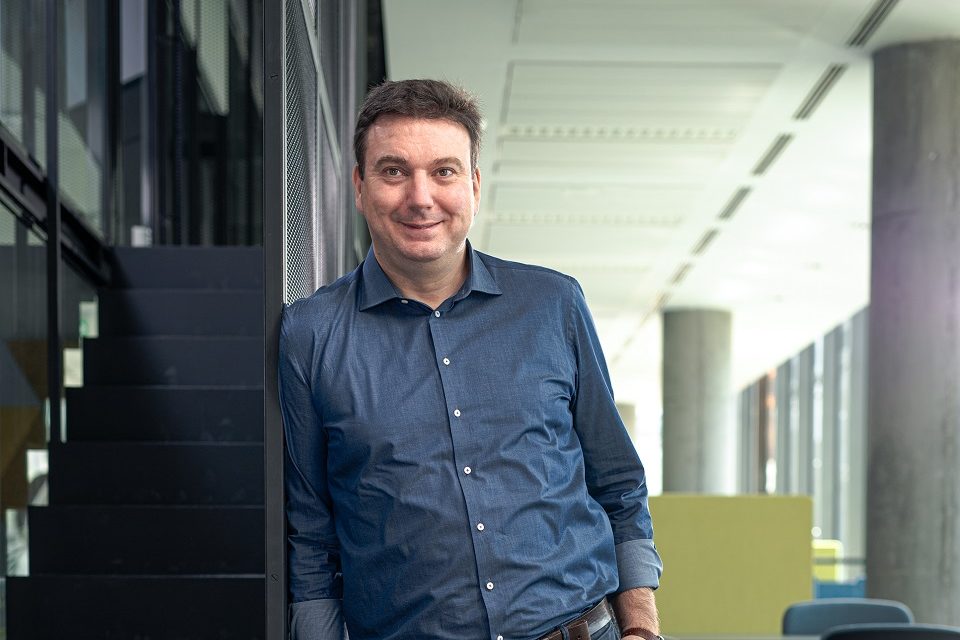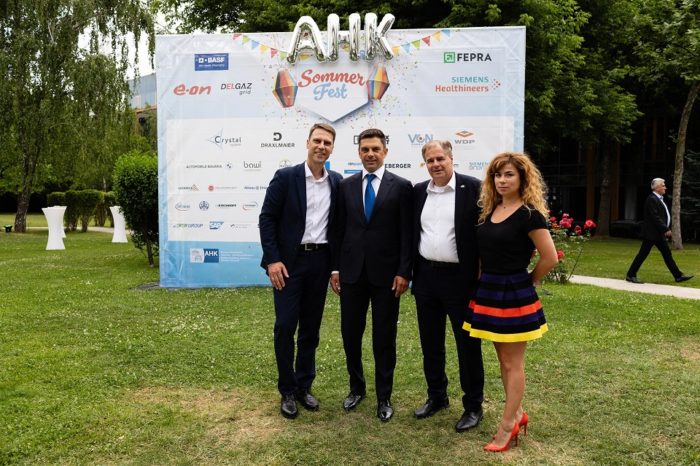Versatile, flexible and modern, the office is now an agile coworking space

The disruption brought in the past years related to working spaces and the new working models – such as hybrid and remote work – mirrored in real changes in then office market, not only for developers and owners, but also for the perception of the overall definition of the working space. Coworking spaces made their place on the market even before pandemic but in the past years, the opportunity of choosing them over the traditional spaces became more visible, natural and sustainable on a long term.
With the rise of remote working, people are increasingly seeking flexible workspaces that are closer to their homes. On the other hand, coworking spaces that prioritize sustainability are likely to attract clients who are committed to environmental practices. And the flexibility of these spaces, the design and the user- friendly approach is just alluring for people working from anywhere.
We have recently talked to Tudor Popp, founding partner al Hotspot Workhub to find out more on the opportunities that coworking spaces can bring to companies, workers and businesses.
How did the rise of coworking spaces evolve this year? What aspects can we consider significant in choosing a coworking space for remote working?
The coworking and flex office spaces are on the rise within a hybrid working environment that is still a challenge given that we have, on the one hand, the remote work demanded by employees and the on-site presence required by companies. Flexible offices, which is the area we operate in at Hotspot, are a solution that can easily accommodate both needs while companies can stay agile in working without the hassle of traditional office requirements – from long-lease contracts to the administration of the space. Our aim is to offer a safe and healthy working environment for companies and their employees, focusing on a significant need we all have post-pandemic, meaning the need to belong and be part of a vibrant community on which we are focusing each day to nurture. In Romania, there is still a lot of room for growth in comparison with other European countries where coworking and flexible offices are the new standard and where people can reach their highest potential in terms of creativity and productivity.
Another essential aspect of coworking, situated at the higher spectrum of what we call flex office and working environment due to its versatility, is that you can enlarge your perspective and networking by interacting with different industries and companies that are working in the same space and where community events can easily facilitate this.
With business predictability reaching a historic low, companies should focus on their business, managing the moment and steering away from the crisis rather than making long-term decisions. Flexible offices are the best solution for agile companies, offering short leases and flexible spaces and are designed to keep people motivated, engaged and safe. We can easily say that flexibility becomes a must.
Which are the benefits of coworking spaces with a direct impact on the productivity and wellbeing of workers?
There are various benefits that a coworking space offers apart from flexibility. As mentioned before, they address the need for belonging, of being part of a community and the need to work in a pleasant, relaxing environment where there is a high focus on wellbeing. From community breakfasts and special events to relaxation areas and ergonomic furniture our concept is focused on three significant aspects: noise reduction, the quality of air and ensuring plenty of natural light. We can also say without a doubt that the office is becoming an experience, and companies need to consider this before anything else when choosing a working space for their employees and see it as a place where people can be emerged in the company culture. All of these have a direct impact, and we witnessed companies increasing their size and productivity within our coworking spaces. We are pleased to contribute to their positive evolution by offering a supportive and nurturing working environment.
What are the main aspects that a coworking space has to meet to be efficient and attractive?
The way we reimagined the office space and what I witnessed is that you need a mix of ingredients, from the great community and events combined with high-quality furniture and high-tech equipment – all complemented by the energy coming from the various events like conferences, product launches, art exhibitions, corporate events and even wine tastings and movie screenings. There is not a “one size fits all” solution as we see with traditional office spaces where there is less flexibility and where “plug-in” solutions can rarely work as they may be seen as artificial and less authentic. Having a space designed from the very beginning around the wellbeing of people and productivity makes a big difference.
How did the psychology of workers change in the past years related to workspaces, and what are they looking for in an office? Which are their needs in 2023?
People became more demanding regarding the working environment and the need for a mindset change from their employers. The isolation during the pandemic generated one of the most significant needs: to belong and feel part of a community besides having a desk. Therefore, the working environment and its versatility to accommodate different needs became highly important so people can be their best selves and for employers to attract and retain talents. We consider community, flexibility and high quality to be the top needs of employees in 2023.
How do you see the evolution of coworking spaces in the future years in Romania? What main trends can be anticipated?
There is still much more potential in the flexible office segment, increasing from 3-5% to 10% in Bucharest and major cities in the next 5 to 10 years. Modular spaces within one of the most agile business environments we are witnessing now and fast responsive manners to clients’ needs will be highly needed. The wellbeing aspect will increase its importance given the economic volatility we are facing now, which will drive even higher demand for self-care and increased resilience which can only be achieved by companies focusing on people and their wellbeing.
How should the companies with traditional office spaces adjust to the new trends of hybrid/ remote working and to the digital nomads’ expectations? How open are Romanian companies, and especially managers, to embrace these new styles of working?
There are two directions currently being taken: one where companies are focusing more on securing flex offices for their teams due to all the aspects mentioned above and companies that are still tied to a lease contract less flexible and find “plug-in” solutions to accommodate the exact same needs. There is for sure a change in the mindset being needed first and foremost at the top management level, while middle management is not at all excluded. We can easily talk about a “flex mindset” that covers the entire spectrum, from new ways of working and shifting from rigid schedules to flexible working hours, to focusing on a flatter organizational structure and where managers become enablers for teams to perform. Nevertheless, we are talking about a process that needs time for suitable adjustments and understanding at both ends – employers and employees, given the human resistance to change, yet one that is already unfolding.
How and why are coworking spaces better than working from home? What is the profile of a coworking user different from someone who prefers working from home?
For the exact same reasons mentioned above, but most of all, for ensuring a secure and welcoming space where technology meets wellbeing and community. The very bridge between technology and humanity that we all need. As we keep saying in our community breakfast invites: alone we are strong, together we are stronger, and I am sure all of us in this segment can testify to this. Collaboration and mutual support are what will drive us forward as people and as companies.














